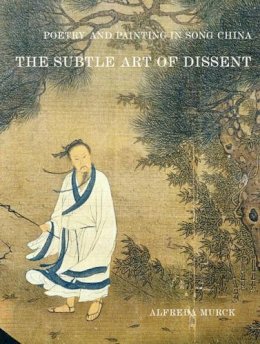17%OFF

Stock image for illustration purposes only - book cover, edition or condition may vary.
Poetry and Painting in Song China: The Subtle Art of Dissent (Harvard-Yenching Institute Monograph)
Alfreda Murck
€ 40.99
€ 34.13
FREE Delivery in Ireland
Description for Poetry and Painting in Song China: The Subtle Art of Dissent (Harvard-Yenching Institute Monograph)
Paperback. Throughout the history of imperial China, the educational elite used various means to criticize government policies and actions. By examining literary archetypes, titles of paintings, inscriptions and the historical context, this text shows that paintings expressed strong political opinions. Series: Harvard-Yenching Institute Monograph Series. Num Pages: 434 pages, 44 illustrations. BIC Classification: 1FPC; 2GDC; 3F; 3H; ACK; AFC; DSBB; DSC; JP. Category: (P) Professional & Vocational; (UP) Postgraduate, Research & Scholarly; (UU) Undergraduate. Dimension: 276 x 212 x 16. Weight in Grams: 1184.
Throughout the history of imperial China, the educated elite used various means to criticize government policies and actions. During the Song dynasty (960-1278), some members of this elite found an elegant and subtle means of dissent: landscape painting.
By examining literary archetypes, the titles of paintings, contemporary inscriptions, and the historical context, Alfreda Murck shows that certain paintings expressed strong political opinions—some transparent, others deliberately concealed. She argues that the coding of messages in seemingly innocuous paintings was an important factor in the growing respect for painting among the educated elite and that the capacity of ... Read more
Product Details
Format
Paperback
Publication date
2002
Publisher
Harvard University Asia Center
Condition
New
Series
Harvard-Yenching Institute Monograph Series
Number of Pages
440
Place of Publication
, United States
ISBN
9780674007826
SKU
V9780674007826
Shipping Time
Usually ships in 7 to 11 working days
Ref
99-1
About Alfreda Murck
Alfreda Murck is an independent scholar living in Beijing.
Reviews for Poetry and Painting in Song China: The Subtle Art of Dissent (Harvard-Yenching Institute Monograph)
In late eleventh-century China, a group of disaffected government officials, their careers in disarray and their lives sometimes at risk, found ways to express political dissent and personal grievances through the use of literary allusions. Expressing dissatisfaction could be dangerous, so these allusions had to be oblique...Circulating among like-minded people, these coded expressions of protest and discontent were relatively secure ... Read more
